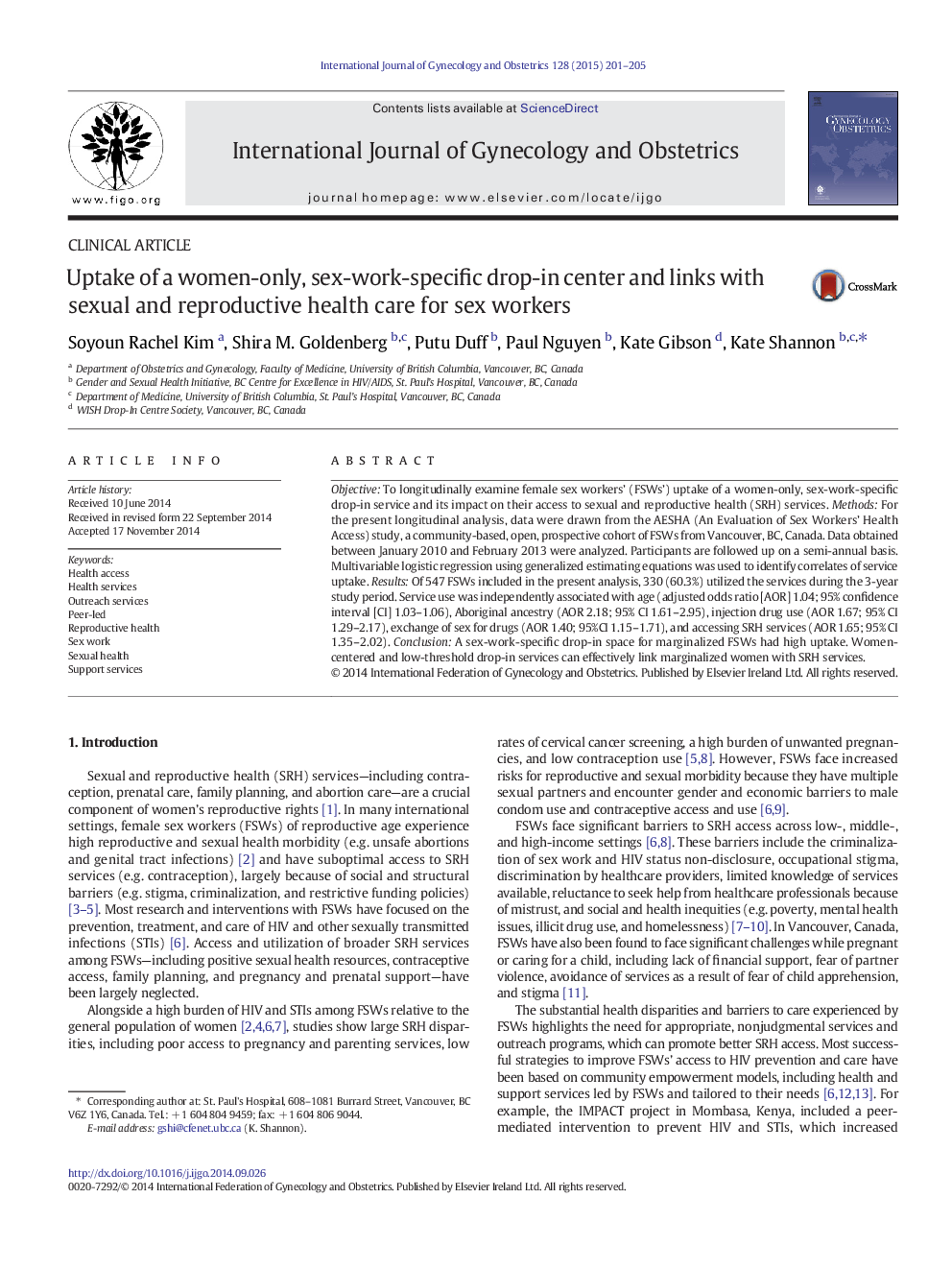| Article ID | Journal | Published Year | Pages | File Type |
|---|---|---|---|---|
| 3950775 | International Journal of Gynecology & Obstetrics | 2015 | 5 Pages |
ObjectiveTo longitudinally examine female sex workers’ (FSWs’) uptake of a women-only, sex-work-specific drop-in service and its impact on their access to sexual and reproductive health (SRH) services.MethodsFor the present longitudinal analysis, data were drawn from the AESHA (An Evaluation of Sex Workers’ Health Access) study, a community-based, open, prospective cohort of FSWs from Vancouver, BC, Canada. Data obtained between January 2010 and February 2013 were analyzed. Participants are followed up on a semi-annual basis. Multivariable logistic regression using generalized estimating equations was used to identify correlates of service uptake.ResultsOf 547 FSWs included in the present analysis, 330 (60.3%) utilized the services during the 3-year study period. Service use was independently associated with age (adjusted odds ratio [AOR] 1.04; 95% confidence interval [CI] 1.03–1.06), Aboriginal ancestry (AOR 2.18; 95% CI 1.61–2.95), injection drug use (AOR 1.67; 95% CI 1.29–2.17), exchange of sex for drugs (AOR 1.40; 95%CI 1.15–1.71), and accessing SRH services (AOR 1.65; 95% CI 1.35–2.02).ConclusionA sex-work-specific drop-in space for marginalized FSWs had high uptake. Women-centered and low-threshold drop-in services can effectively link marginalized women with SRH services.
